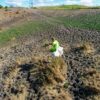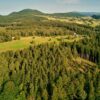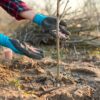Monthly Reports November
November 2022.
The NZ domestic market has continued a downward slide in demand in Q4 with it becoming apparent the overall market is teetering on the very narrow ledge of “just ok”. Most sawmill stocks remain on the low side, but the forward orders book is becoming much smaller.
Most commentary is suggesting the recent interest rate hikes will drive a wedge into new house starts, thus we can expect wider impacts across the construction sector. There is certainly a bit of scorn being directed toward Wellington, with the PM now firmly off sawmills owners Christmas card list.
In China, the fundamentals remain weak but there are small flickers of flame way down the Q1 2023 tunnel. As at mid-November, daily usage is hovering around 70,000 cubic metres per day across the eastern seaboard for all softwoods, well off the pace of the normal 80- 90,000 we would typically see at this time of year.
But a significant positive is the rate of consumption is happening in a nation where COVID lockdowns in large cities remains the order of the day. Another positive rests in NZ’s now total dominance in the softwood fibre trade. NZ Radiata pine is now in excess of 85% of all China supply with European spruce basically out of the game at current US$CFR levels (log prices landed China).
Russia is of course out of the supply sandpit as is the Pacific North West, and supply out of Uruguay is on its last legs. This then leaves NZ in a pretty favourable position as and when the market recovers.
The very suggestion that it will recover is premised on recent heartening signs in China. The Government has recently announced two tranches totalling RMB130bil that is essentially a rescue package to construction sector debt. This is not currently turning the market with little sign of investment into new projects. But the overall market sentiment has improved and in China, sentiment is everything.
Also, in early November, the Chinese Government released new policies for Covid Control and the Real Estate Sector. The basic principles of this include that China will look to move towards a less restrictive approach, with rumours that the borders may fully open at some stage next year (perhaps Q3/4). This news has also improved market sentiment.
Shipping rates have been a dominant factor in reducing NZ forest grower returns for most of 2022. The day of reckoning has arrived and the NZ forest sector is certainly not offering up napkins for ship owners to dab their bloodied noses.
In June this year I paid US$77 per cubic metre for a shipment of logs to China. Negotiations are already under way for our December vessel with the low $30’s on the table and the ship owners are not flinching. Indeed, they seem highly eager to sign off the Charter party Agreement. Right now, there a plenty of vessels opening on NZ and charterers have choice.
Christmas time in NZ, followed by Chinese New Year, always brings some elevated uncertainty to the market as we effectively have 3 weeks when we are not producing and three weeks when China is not consuming log and lumber.
Thus, for NZ Forest Growers, December and January are going to be difficult. Although shipping rates are falling sharply, so is the selling price in China with sub US$120 per cubic metre A grade basis, very much in the negotiation mix. It was well north of US$150 not that long ago. Add in a strengthening Kiwi$ against the US$ and drops in NZ wharf gate prices would appear more likely than not.
Thus, we end a year of huge challenges, high levels of uncertainty and difficulties in realising that wonderful word, “profit”. We should remind ourselves we live, work and play in paradise, unlike many peoples of the world.
My special salutations to readers, your positive comments are appreciated and it is great to know keeping the information flow going helps in even the smallest of ways. I extend best wishes for a safe and happy festive season and holidays.
As always People, please remember the thoroughly important message, “It remains, as always, fundamentally important, no matter the challenges, the only way forward for climate, country and the planet, is to get out there and plant more trees”!
Allan Laurie.
Laurie Forestry.












